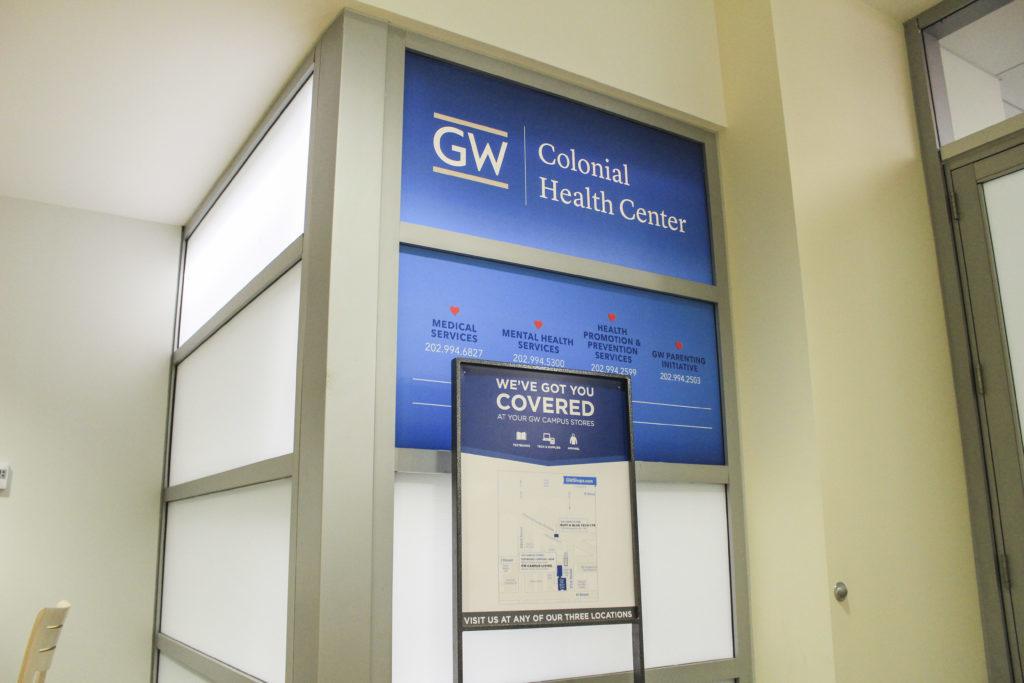The student health center does not offer DNA testing after a student has been sexually assaulted, which experts say could make it harder for students to have documented physical evidence in a future trial or judicial hearing.
Rape kits, which allow medical professionals to collect forensic evidence from sexual assault survivors, are not available at the Colonial Health Center. Experts said not having the kits could limit evidence survivors are able to present in their case, but because they require special training to administer, rape kits aren’t typically available on college campuses.
University spokeswoman Maralee Csellar said the CHC works with sexual assault survivors to provide emergency contraception, sexually transmitted disease testing and mental health support. She said that Sexual Assault Nurse Examiner exams require a forensic nurse to be on call 24 hours a day, seven days a week at an emergency facility.
Only one hospital in the District, MedStar Washington Hospital Center located near Howard University, has been designated to offer the exam, she said.
The kit is a box containing envelopes, swabs and other kinds of extraction instruments where nurses can collect physical evidence from a person’s body, clothing or any possession they had with them during the assault.
“As part of our ongoing education and outreach efforts, we regularly meet with organizations across the city who assist survivors of sexual assault so that we can develop relationships and enhance partnerships,” Csellar said in an email.
The University partners with the D.C. Forensic Nurse Examiners, an organization that provides forensic care to survivors, to exchange information about medical resources and give information about the tests to survivors following a sexual violence incident, she said.
Csellar declined to say if the University was aware of student concerns regarding the absence of a rape kit in the CHC, and whether or not officials had addressed these concerns.
The absence of rape kits has sparked controversy at GW in the past. In 2007, a Howard University student filed a federal lawsuit against GW, GW Hospital, Howard University, Howard University Hospital and the District, claiming they prevented her from receiving a medical examination for rape.
Campus advocates have sought to make rape kits available on campus. Eve Zhurbinskiy, a commissioner of the Foggy Bottom and West End Advisory Neighborhood Commission, campaigned for her seat in 2015 with a platform that included adding forensic medical exams to GW Hospital.
Zhurbinskiy said that in order for GW Hospital to provide rape kit examinations, the hospital would have to undergo renovations to establish private clinical spaces for nurses to perform these tests, which would be costly and require additional space.
“It really has to be done by trained nurses and there has to be a victim advocate present that can testify in court,” she said. “I think no survivor would want to have this done at a student health clinic and if we can make this happen at GW Hospital that would be amazing.”
Advocates said using a rape kit requires extensive training and certification to prevent further traumatizing the survivor during the exam, which is why they are not typically found on campuses.
Nikki Charles, the co-executive director for Network for Victim Recovery of D.C., said the training required to become a certified SANE site is typically beyond the scope of what college health centers are able to offer.
“The training is pretty significant in that a rape kit can’t be administered by any registered nurse. Typically, a college campus wellness center is not equipped to provide the administration of a rape kit,” she said.
Charles said requirements about who administers rape kits and how they are trained are especially stringent because the information gathered could be used in a future criminal trial.
“What it is at its core is evidence collection,” Charles said. “Because if there is a chain of evidence issue, if that case goes to criminal trial, the defense attorney will use that to tear apart the case.”
American and Georgetown universities also direct students to MedStar Washington Hospital Center for examinations.
At Tulane University, students have access to rape kit examinations through the University’s medical center, according to the Tulane’s sexual assault victim handbook.
At New York University, Crisis Response Counselors are available to help survivors evaluate their options after an assault, including directing them to where the nearest rape kit site is located.
Denise Krepp, an alumna and Capital Hill and Southeast Advisory commissioner, said there is a direct correlation between the availability of rape kits on campus and the tendency of students to report sexual assault incidents, because students who feel their university is providing additional resources for survivors are more likely to report.
“It should be in the University’s interest to provide a streamlined process that is transparent and readily available to students who are seeking help,” she said. “The faster the rape kit is done, the more likely the individual is to be caught.”
Krepp said the University should be able to allocate the funds or contact alumni to provide the rape kits and specially trained nurses for the CHC.
“I keep getting inquiries from GW for the school to build buildings, and my question to the schools is, ‘why are you spending so much on the school and not on the students?’” Krepp said. “If the school can spend the money on the buildings, the school can spend the money on the nurses.”
Dani Grace and Leah Potter contributed reporting.



